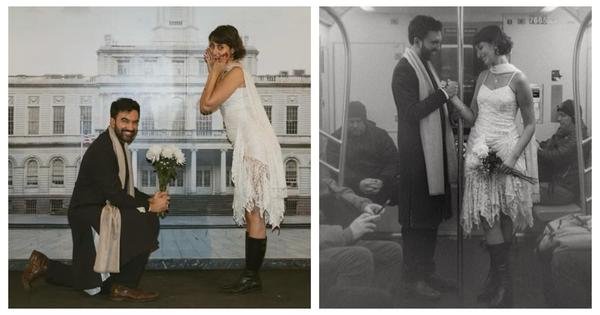Beyond the Meme: Modernity and Muslim Identity Today

The Illusion of the Past
You’ve seen the image. It’s all over American social media. Grainy photos from 1960s Tehran show women laughing in miniskirts, holding cocktails. Neon signs light up the night. The caption reads, “Iran before the revolution.” It’s a digital memory of a modernity that America imagines it created.
But this meme, shared with sadness, hides a darker truth. It ignores the Shah’s SAVAK death squads, the poverty, and the US-backed dictatorship that led to the revolution. This isn’t history. It’s a made-up story. To America, progress means miniskirts and muted faith. It’s a modernity measured by how close it is to Western culture.
Iran before the Islamic revolution. pic.twitter.com/lLsFegz9cv
— Tom Harwood (@tomhfh) June 17, 2025
The Present Reality
Now, let’s look at a live feed from June 24, 2025. Queens is hot and buzzing with disbelief. Zohran Kwame Mamdani, a 33-year-old socialist, has just won New York City’s Democratic mayoral primary. He beat disgraced former governor Andrew Cuomo.
Mamdani is the son of a Ugandan Marxist scholar and an Oscar-nominated filmmaker. Beside him stands Rama Duwaji, a 27-year-old Syrian-born illustrator. Her art has powered Palestinian solidarity movements. They are the meme come to life. Mamdani in his East African khanzu or sharp suits, Duwaji in minimalist linen. Her Instagram is full of Brooklyn murals and keffiyeh-clad protesters.
Cosmopolitan. Educated. Unapologetically Muslim. The look is perfect.
Iran before the revolution pic.twitter.com/3DngS2KhsZ
— Abu Mexicuh 🇵🇸🪂🔻☭ (@notronmexicuh) June 17, 2025
Zohran Mamdani and Rama Duwaji.
The Backlash
The online anger begins. Not nostalgia, but hate. Tabloids call Mamdani a “radical fundamentalist.” Cuomo’s allies darken his beard in attack ads. They mix his image with 9/11 rubble. Groups funded by billionaires warn of disaster.
Why? Because Mamdani is breaking the script. He calls Gaza a “genocide.” He vows to arrest Israeli Prime Minister Benjamin Netanyahu under International Criminal Court warrants. He promises free buses by 2027, paid for by taxing millionaires.
Duwaji’s ceramics show what the meme hides. Plates glazed “Free Palestine,” animations of Israeli tanks crushing protesters. Her Nina Simone quote hangs like a bomb: “An artist’s duty is to reflect the times.”
This shock isn’t accidental. It’s revealing. The meme wants Muslims to show secularism only in looks. Assimilated in dress but silent on power. Mamdani and Duwaji break the fantasy. He supports socialism, not sharia. Her art uses beauty against empire.
Yet when Mamdani criticizes Israeli policy, his Muslim identity becomes the explanation. The label “fundamentalist” is used as a weapon, shaped by decades of post-9/11 fear.
“Revolution@, by Syrian artist Rama Duwaji. #Sudan #Lebanon #Iraq #Algeria pic.twitter.com/Kh88pxPkRH
— Rasha Al Aqeedi (@RashaAlAqeedi) October 24, 2019
Split-screen America
Look at two images:
- First Image: The 1967 Tehran nightclub. Frozen. Silent. Politically inert. Safe. A modernity America can pity and own.
- Second Image: Mamdani’s victory speech: “I’ll be mayor for every New Yorker.” Duwaji’s Instagram: “Couldn’t possibly be prouder.” Alive. Unsilenced. Threatening.
The backlash shows America’s conditional acceptance. Duwaji’s clients include the Tate Modern. Ignored. Her pro-Palestinian art? Called “radicalism.”
Mamdani’s work for tenants in Queens? Erased. His policies become “Soviet overreach” in attack ads. Acceptance lasts only until sacred cows are challenged: unwavering Zionism, capitalist dogma, American innocence.
Even their love story is used for suspicion. They met on Hinge, married at City Hall. When trolls accused Mamdani of “hiding his wife,” he fired back: “You can critique my views, but not my family.”
The Hollow Idol
The meme lasts because it is dead. A relic that lets Americans mourn Muslims they never accepted alive. But Mamdani and Duwaji are the ghosts stepping from the frame. Their possible move to Gracie Mansion isn’t just political. It’s a test of whether America can handle the modernity it idealizes.
His coalition shows the complex, vocal Muslim presence the meme erases. 50,000 volunteers, young White voters flipping decades of political norms.
Where the meme offered miniskirts as symbols of freedom, Duwaji offers art as resistance. Where it promised silent assimilation, Mamdani demands justice.
In a must-read comic in the Washington Post, illustrated by Rama Duwaji, Palestinian artist Reem Ahmed recounts the experience of being trapped under rubble for 12 hours following an Israeli bombing in Gaza: https://t.co/raC5R8KjDa pic.twitter.com/VjqoGxg9vW
— MIX (@mixdevil66) November 24, 2023
Fade Out
The meme was never about Iran. It was always about us. As Mamdani stands one election from Gracie Mansion, America’s reflection is clearer than ever. A nation clinging to its own fundamentalism. Not of scripture, but of conditional belonging.
The real “fundamentalists” are those who demand modernity without justice. Diversity without dissent. Muslims without voice. In the flicker between the grainy past and the vivid present, the illusion burns away.
What remains is a choice: confront the living or keep mourning the dead.
Zakir Kibria is a writer in Dhaka. His email address is zk@krishikaaj.com.



